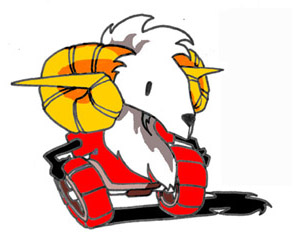Back to djaimox workshop page |
First aid for fear
."Never never change your goal when you're feeling scared, discouraged or depressed." - Barbara Sher |
 |
"I'll tell you what's
to stop you from letting fear stop you. Everything in this section.
Because I happen to believe that missing out on your dreams and never
finding out what you're capable of is a hell of a price to pay for peace. Fear is the natural companion
to creative action." |
 |
The following might be experienced as you try to do
or get what you want: |
|
Stage fright vs survival fear |
|
1st Survival fear message : prepare You feel afraid because you have never done this before and didn't know how. Your fear is asking you to acquire knowledge before you move on. Prepare, inform yourself, get instructions, rehearse). Here, your network of friends and barn-raising can be useful |
|
Super me/super fool I disagree with people who think one can be over prepared. |
| 2nd Survival message: lower your standards- at first You've never done this before. If you expect to do it as well as someone who's done this fort the thousandth time, you'll be in trouble. You won't be able to do it at all |
|
This fear shows you that you might suffer from perfectionism.. Your
vision and ambition may have outgrown your experience and skill. when you come off stage, or hang up the phone, you can go to pieces
again. But while on stage be a pro. |
| 3rd Survival message: fear of success Focus on immediate success. The success you get from the step you have accomplished up to this point. Forget long-term success. You might be disappointed or too busy to savor it when it comes. But the immediate success you can savor right now. |
Fear that success might bring loneliness The fear that when we need support the most- the moment we move towards our goals-we get less of it. Your family and friends will get angry at you. Here, the message from your fear is : you can not go for your goal alone. Get yourself some emotional support. |
Back to workshop page |
|
Recommended readings:
 Barbara Sher Wishcraft |